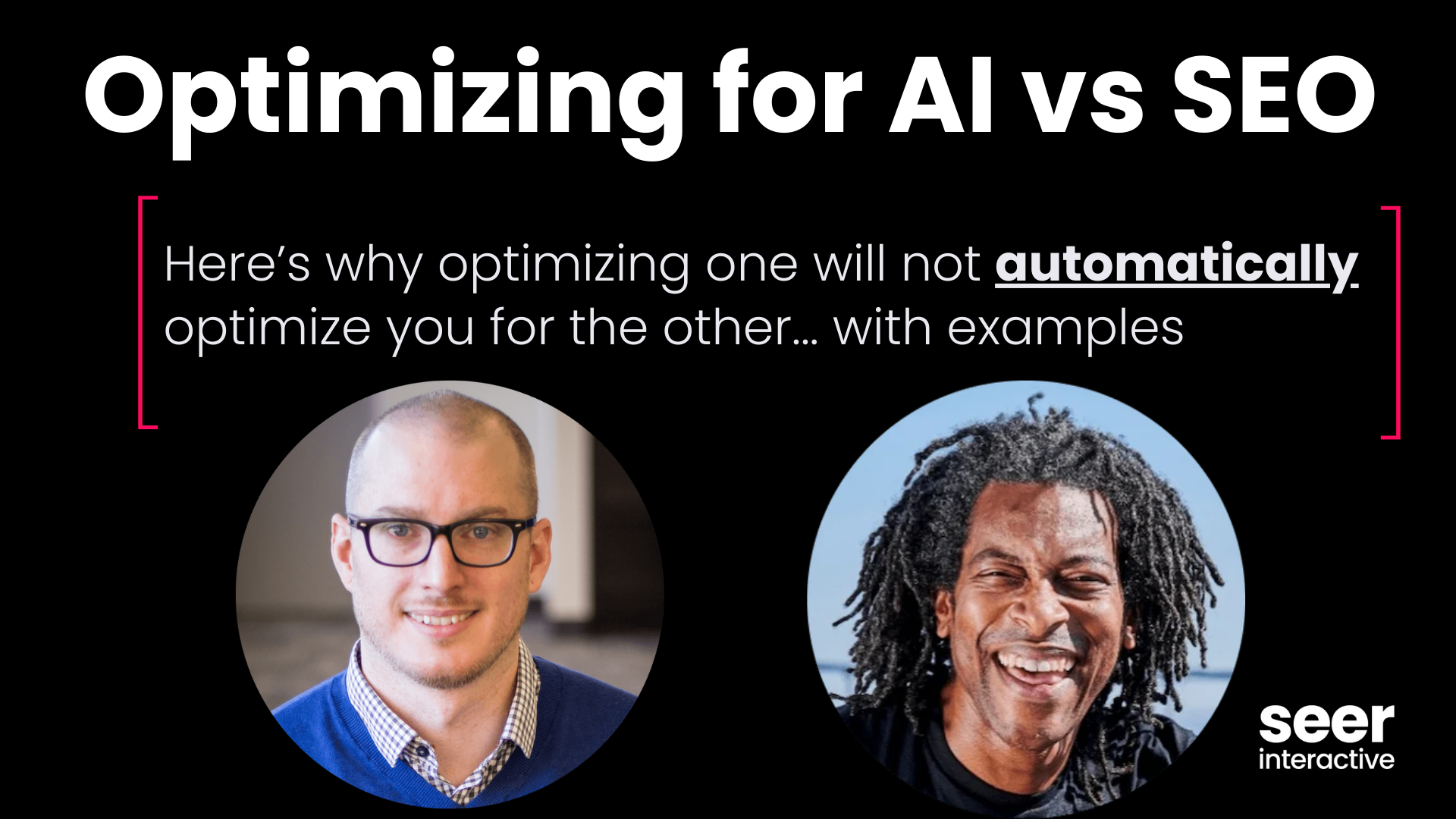MozCon 2022 Recap #3:
Optimize for People and Search Engines
On the final day of MozCon 2022, the stage was set with day three speakers ready to take on the following breakout themes head-on:
Build a Strong Foundation
Put the Expertise in E-A-T
It's 2022, are we really still wondering if the Google algorithm is the first and only consideration when crafting SEO strategies?
If you had a chance to listen in on Lily Ray’s presentation titled “Why Real Expertise is the Most Important Ranking Factor of Them All,” then you would have heard how a lot of SEOs aren't leaning into Google’s E-A-T guidelines as much as they should.
Lily Ray dug into the impact of "E-A-T" (which stands for Expertise, Authoritativeness, and Trustworthiness aka the criteria Google's algorithm uses to evaluate and rank content). For ideal SEO performance, E-A-T is still the best framework to follow.
In times of crisis, which unfortunately are more prevalent now than ever, "There should be even more emphasis on Google's E-A-T framework today, especially on the E." It's upmost critical to ensure only the best, most relevant and accurate results populate the SERPs.
There should be even more emphasis on Google's E-A-T framework today, especially on the E.
In Dr. Pete Meyers presentation titled, “Rabbit holes: how Google Pushes Us Down The Funnel” he digs into this deeper. “Sometimes all it takes to make a big impact is to show up at the right time".
Now, that being said, it's not as simple as it sounds. In order to show up at the right time, you have to have a strong sense of where a potential customer is in their journey at any given moment. Dr. Pete Meyers talked about how the messy middle between each decision can make this challenging.
Set the Right Goals
SEO Consultant Joe Hall said it best in his presentation titled, “Understanding Key Performance Factors: Using Data to Make Smart Decisions for Organic Search”. While, yes, the SEO process can be hard to execute and is almost always urgent for the client, "use data to make buy-in, execution, and results faster.”
Joe went on to explain how to have the conversation with clients to understand what they consider to be impactful -- whether that be KPIs (Key Performance Indicators), KPFs (Key Performance Factors), etc.
Once you have what they care about most nailed down, you can then work backwards to create the most effective content strategy to hit that goal. "Key performance factors and indicators can help you better understand the most impactful elements of your SEO strategy.”
Now, as Petra mentioned, “Things aren’t always as they seem.” For instance, when your leadership puts emphasis on the importance of SEO, but yet it is never prioritized when it comes to implementation. "You can’t win every battle, so don’t bother fighting them all." The goal is to get to the next step in conversation.
Understand and Test Your Audience
Kill the Cliches
As an SEO, when understanding your customer, you first want to create your buyer persona, right?
Amanda Natividad, VP of Marketing at SparkToro, took the stage with force and very clearly stated, "start considering audience personas over buyer's personas." Amanda went on to explain that buyer personas could lead to an utterly misguided campaign strategy simply due to the way the research was done.
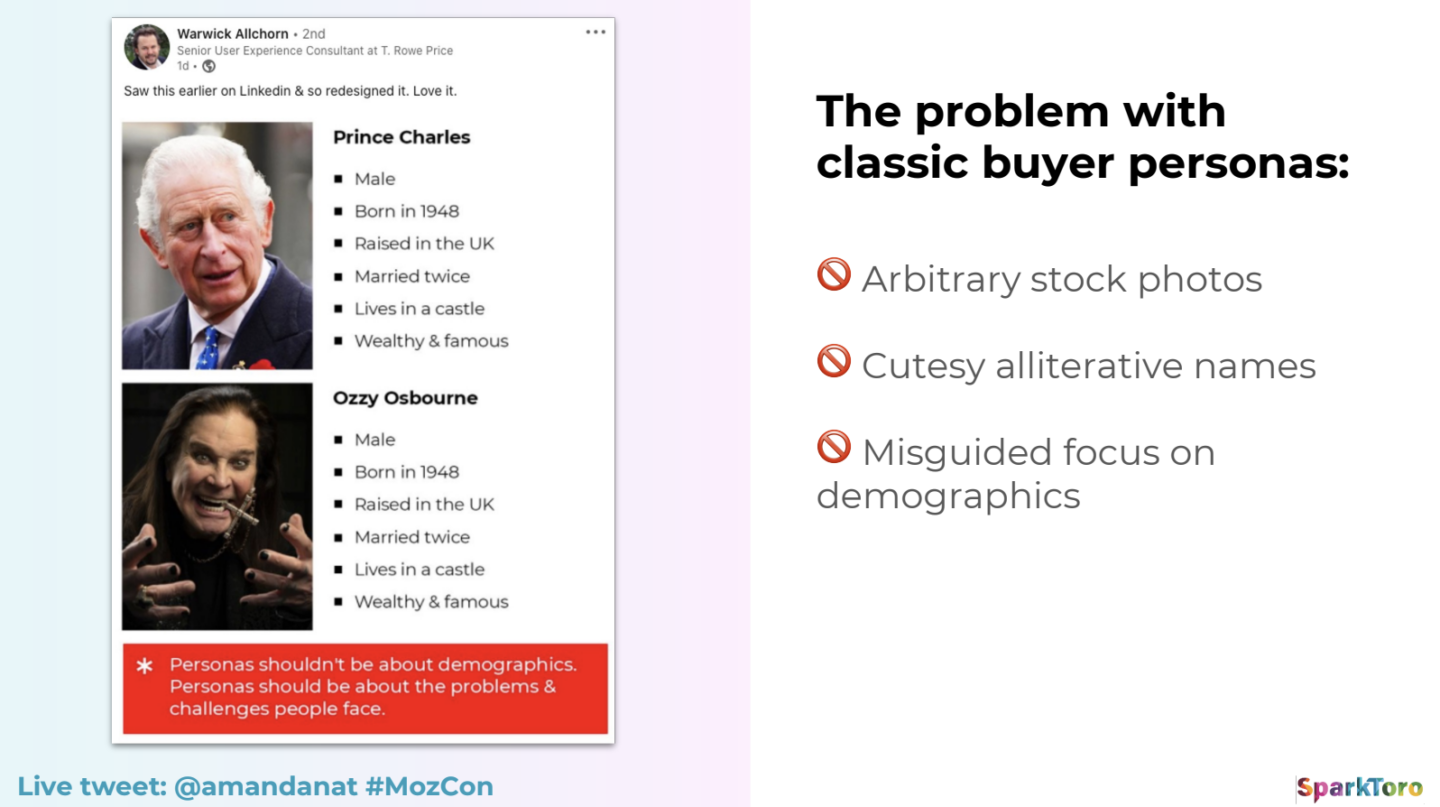
Don’t get it twisted, Amanda did state that buyer personas can still be helpful for your marketing team, but recommended breaking down them down into categories:
- Buyer Persona
- Amplifier Persona
- Attention Persona
All of these categories can be weaved into your marketing strategy at different stages of your funnel -- which according to Amanda, will set you apart from the other folks trying to fight for the same backlinks, contacts, and traffic.
Use All the Data
Believe it or not, being empathetic to your customers can help you better understand pain points and guide you toward overdelivering on their expectations.
"The less you know about your customer, the more it's going to cost you to acquire them," as Seer Founder, Wil Reynolds, said in his talk, "Keyword Research for Thanks Instead of Ranks".
Keyword research focused on pain points can help build better products. You can learn a ton when you spend time digging through keyword data for clues.
For example, by combining organic search and PPC data, you can even reduce customer acquisition costs -- increasing ROI. All of this data is out there, you just need to take the time to go through it.

However, as companies continue to move up the data maturity curve with AI and Machine Learning -- it’s essential to keep a tight watch on the outputs of our analyses. The danger of using data can be in trusting it blindly and creating a disconnect between you and your audience.
Test, Test, and Test Again
Today, you have endless options and possibilities to win online, but the main question remains how do you determine which tactics to deploy and when? There is a lot of hype about experimentation for this reason. Besides, is there a better way to fully understand your customer without testing what they gravitate to most?
Karen Hopper presented, "Beyond the Button: Tests that actually move the needle" and stated these steps for launching succesful tests:
- Start with your own data (think: Google Analytics, Hotjar, etc.)
- Identify what's in your power to change that will impact those metrics
- Organize your ideas and write a hypothesis for each one
- Prioritize your tests based on estimated impact vs level of effort
- Rinse and repeat. Run your tests again, again, and again!
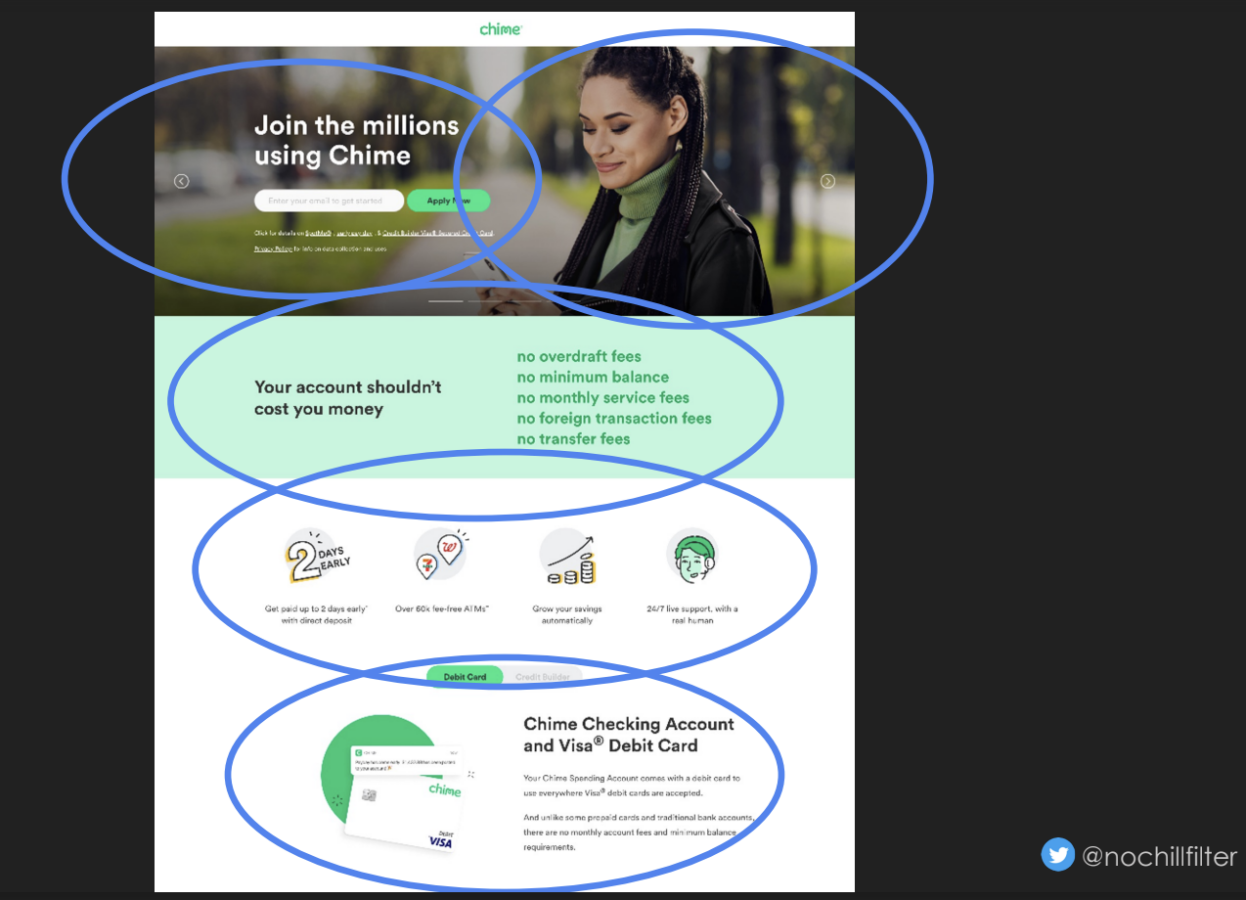
Content Marketing isn't Just Blog Posts
One of my favorite quotes of the day was from Chris Long of GoFish Digital, "get the fundamentals down, and the level of everything you do will rise."
Get the fundamentals down, and the level of everything you do will rise.
In his session, Chris touched on the importance of content freshness and how one piece of content that gets refreshed when applicable will perform better than creating net new posts that may take some time to generate traction.
His team tested this hypothesis and noticed ranking drops after the 60-day mark:
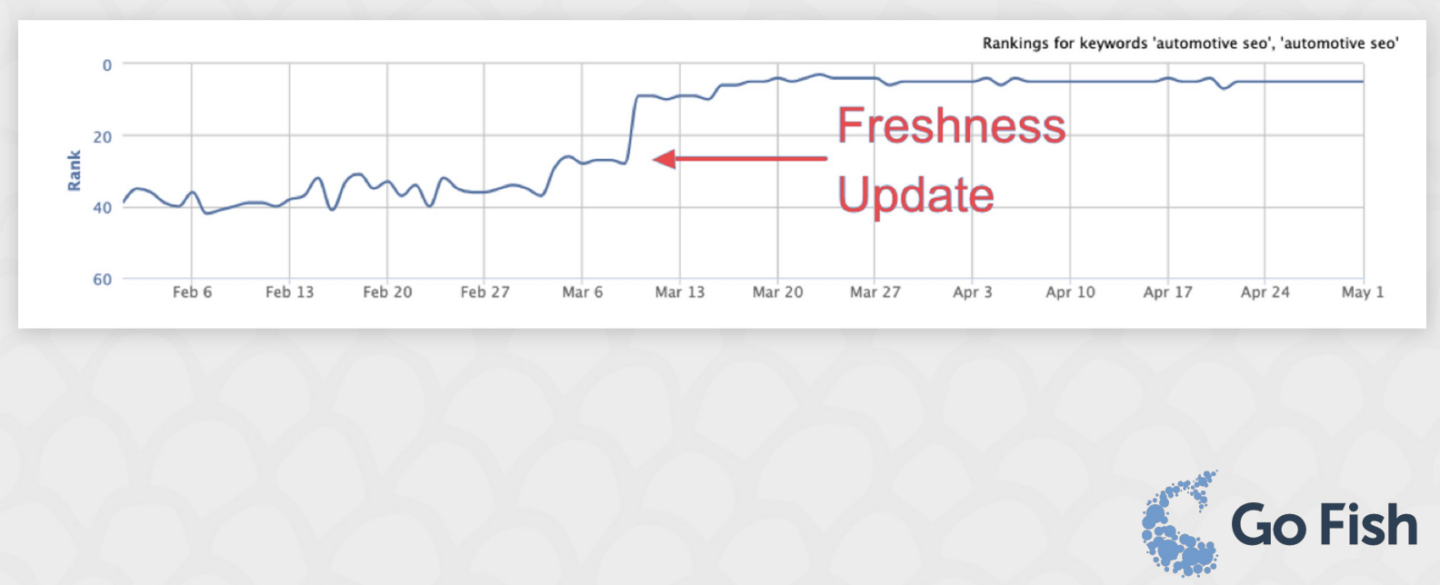
They found simple optimizations were better for the primary keyword while full audits were better for a more extensive set of keywords.
Ross Simmonds also made this point saying that blog posts aren't going to cut it anymore -- at least not like they did in 2014. To really gain market share, you need to “Think like a media company."
For example, one piece of content has the ability to have over 15 different touch points and strategies associated with it. For example, why not create significant content engines that go beyond a list of blog posts? "The content distribution possibilities are endless."
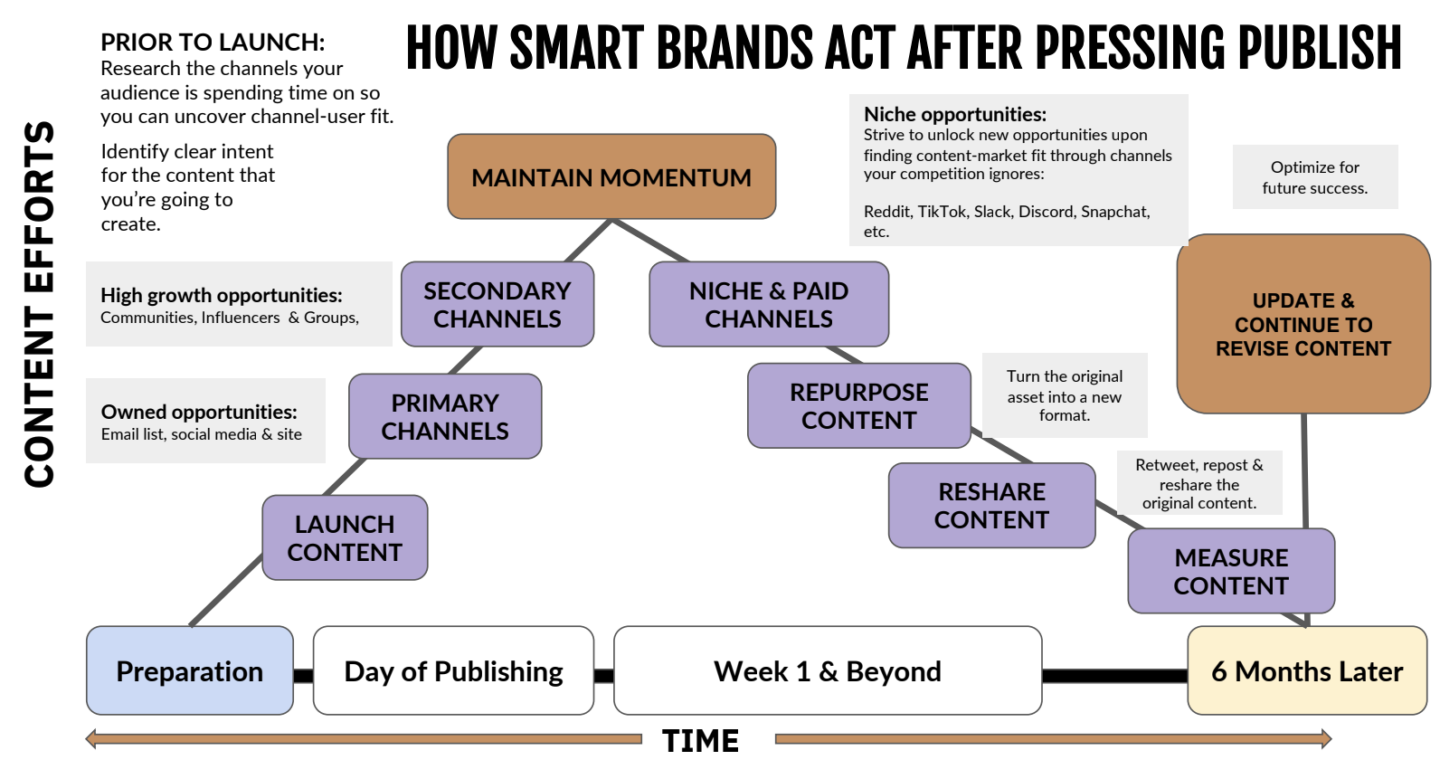
In Conclusion
We had a great time attending MozCon 2022 in Seattle again this year and are already looking forward to next year. We can’t wait to see how some of these themes continue to play out throughout the digital marketing and search industry in years to come!
So, what did you think about these breakout themes from this year's event? Let us know on Twitter (@SeerInteractive) or reach out to me directly on LinkedIn!
More Insights from MozCon 2022
<-- Recap #1: Doing What's Hard Has the Greatest Impact
<-- Recap #2: Put the User First & Success Will Follow



